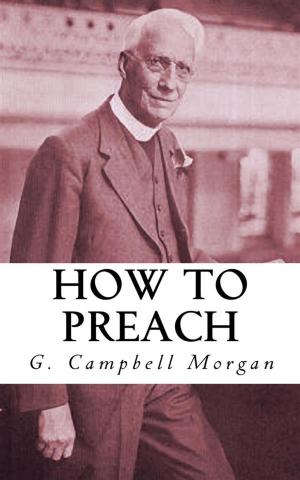The Gospel According to St. Mark: A Devotional Commentary
Volume 2
Nonfiction, Religion & Spirituality, Christianity, Christian Sermons, Christian Literature, Bible & Bible Studies, New Testament, Commentaries| Author: | J. D. Jones | ISBN: | 1230001930559 |
| Publisher: | CrossReach Publications | Publication: | September 24, 2017 |
| Imprint: | Language: | English |
| Author: | J. D. Jones |
| ISBN: | 1230001930559 |
| Publisher: | CrossReach Publications |
| Publication: | September 24, 2017 |
| Imprint: | |
| Language: | English |
We resume the thread of the Gospel narrative at the mission of the twelve Apostles. Jesus must have had a heavy heart when He took His leave of Nazareth. It seemed as if rejection was to be His invariable lot. For His rejection at the hands of the dwellers in Decapolis had been swiftly followed by this rejection at the hands of His own townsmen. At the one place they had begged Him to depart out of their borders; at the other they were scandalised in Him. And yet, as Bishop Chadwick says, we read of no statement of His labours. Men, after a hard and bitter experience, are apt to be discouraged and depressed. Elijah, seeing the apparent failure of his work in Israel, wished that he might die. But Jesus never gave way to these fits of despair. He never for one moment laid aside His work. “When they persecute you in this city,” He said to His disciples, “flee ye into another” (Matt. 10:23).
That was exactly the principle on which the Lord Himself acted. Rejected at Nazareth, Jesus did not abandon His work in high dudgeon. He simply changed the sphere of it. When the Nazarenes refused to listen to Him, “He went round about the villages teaching” (ver. 6). “Round about the villages!” What an illustration this is of the condescension of Jesus! When you next read that verse (Matt 11:29) in which He says, “I am meek and lowly in heart,” put down in the margin this verse 6 as illustration and proof of the claim.
“He went round about the villages teaching.” The villages! We townsfolk sometimes talk of the village with just a touch of scorn. And when it comes to being a village preacher, we think of him with a kind of superior pity. We talk of the village preacher as an “obscure” person, or say that a man of gifts is “buried” in a village. There is not a student leaving college who does not think himself too good for the village. Too good for the village? We may all of us well go to school to Christ, to learn the lesson of lowliness; to be taught to be wilting to take the small opportunity, and to serve Him in a humble place.
We resume the thread of the Gospel narrative at the mission of the twelve Apostles. Jesus must have had a heavy heart when He took His leave of Nazareth. It seemed as if rejection was to be His invariable lot. For His rejection at the hands of the dwellers in Decapolis had been swiftly followed by this rejection at the hands of His own townsmen. At the one place they had begged Him to depart out of their borders; at the other they were scandalised in Him. And yet, as Bishop Chadwick says, we read of no statement of His labours. Men, after a hard and bitter experience, are apt to be discouraged and depressed. Elijah, seeing the apparent failure of his work in Israel, wished that he might die. But Jesus never gave way to these fits of despair. He never for one moment laid aside His work. “When they persecute you in this city,” He said to His disciples, “flee ye into another” (Matt. 10:23).
That was exactly the principle on which the Lord Himself acted. Rejected at Nazareth, Jesus did not abandon His work in high dudgeon. He simply changed the sphere of it. When the Nazarenes refused to listen to Him, “He went round about the villages teaching” (ver. 6). “Round about the villages!” What an illustration this is of the condescension of Jesus! When you next read that verse (Matt 11:29) in which He says, “I am meek and lowly in heart,” put down in the margin this verse 6 as illustration and proof of the claim.
“He went round about the villages teaching.” The villages! We townsfolk sometimes talk of the village with just a touch of scorn. And when it comes to being a village preacher, we think of him with a kind of superior pity. We talk of the village preacher as an “obscure” person, or say that a man of gifts is “buried” in a village. There is not a student leaving college who does not think himself too good for the village. Too good for the village? We may all of us well go to school to Christ, to learn the lesson of lowliness; to be taught to be wilting to take the small opportunity, and to serve Him in a humble place.















